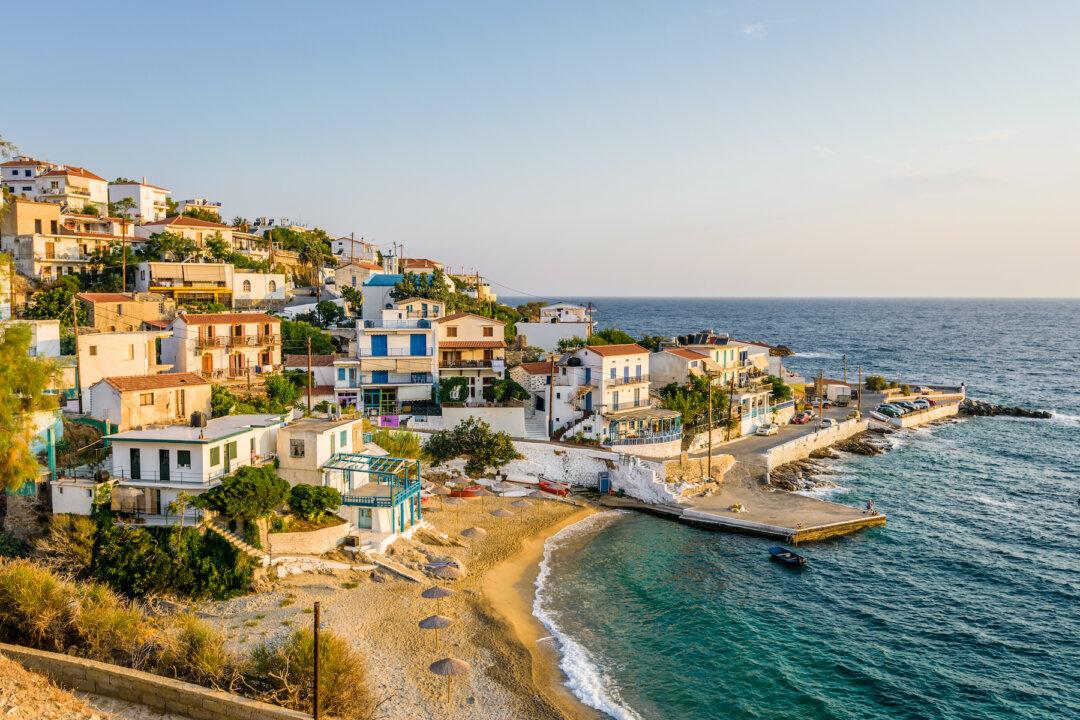In late spring on the Greek island of Samos, the gnarly vines claw their way out of the sun-scorched, stony soil on Mount Ambelos. Their branches, twisted, low-lying, and braced against sea-salt winds, hold up precious clusters of small, gold-green muscat grapes that have made this tiny isle in the North Aegean—just 27 miles long and 8 miles wide—a world-famous wine producer. Floral, honeyed, and with a delicious perfume, they are used to make some of the finest dessert wines in the world, but the best of them become a key ingredient in one of Greece’s most celebrated products: Metaxa.
I remember Metaxa from my childhood, when my parents—never big drinkers—would produce the same dusty bottle from the back of the cupboard whenever they had guests. Every Greek household had one, even if the occupants were, like my family, Cypriot. It’s a fact that Cypriots are Greek when it suits them, and Cypriot when it doesn’t! In the matter of Metaxa—a drink to be proud of—my parents were definitely Greek.





